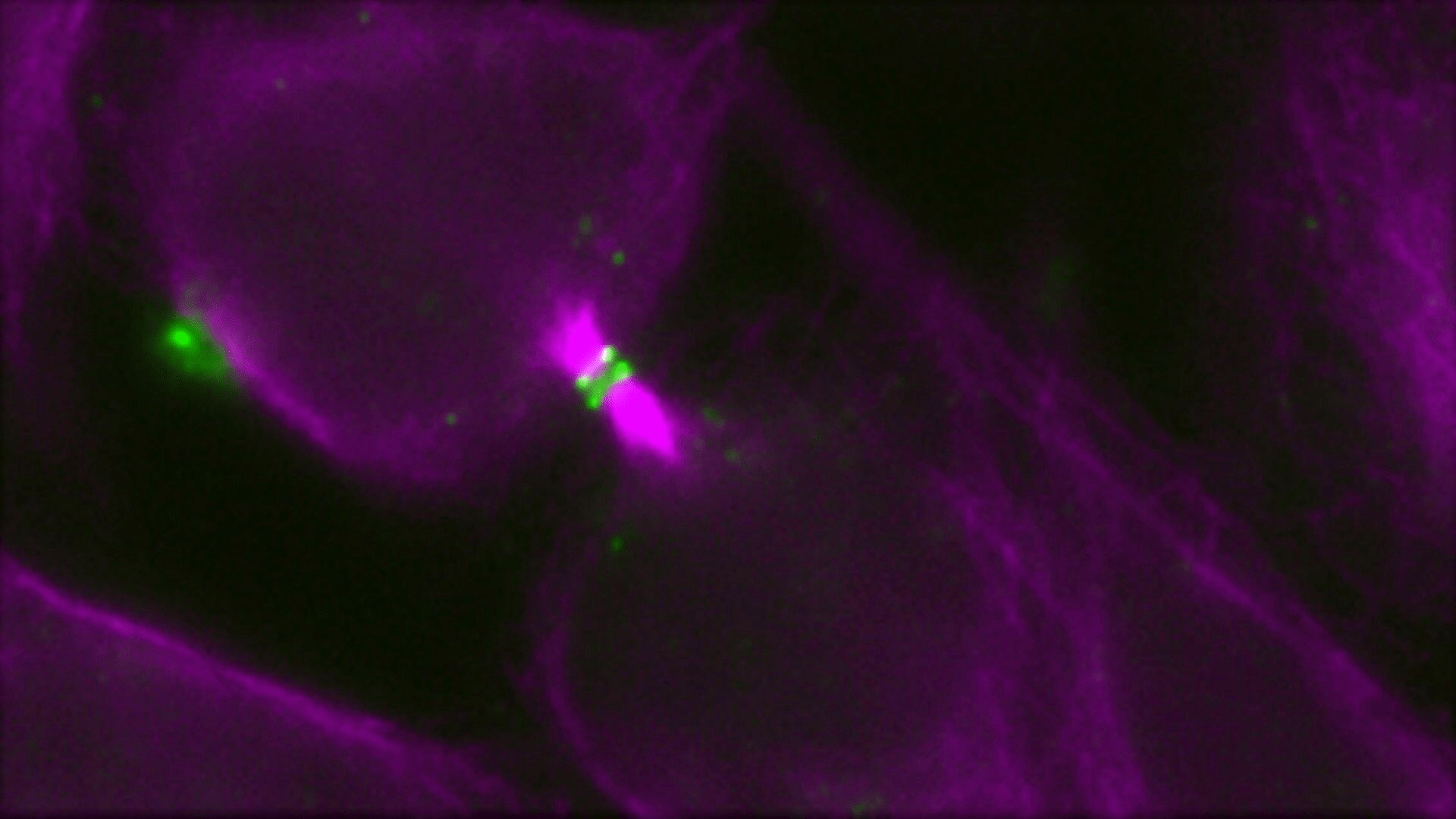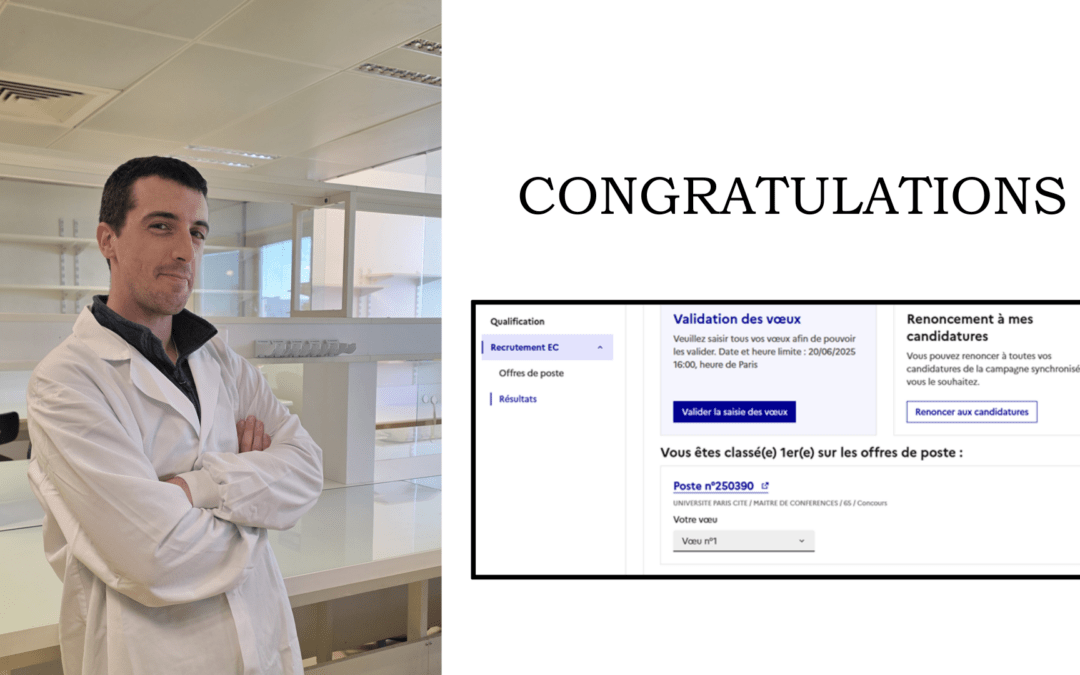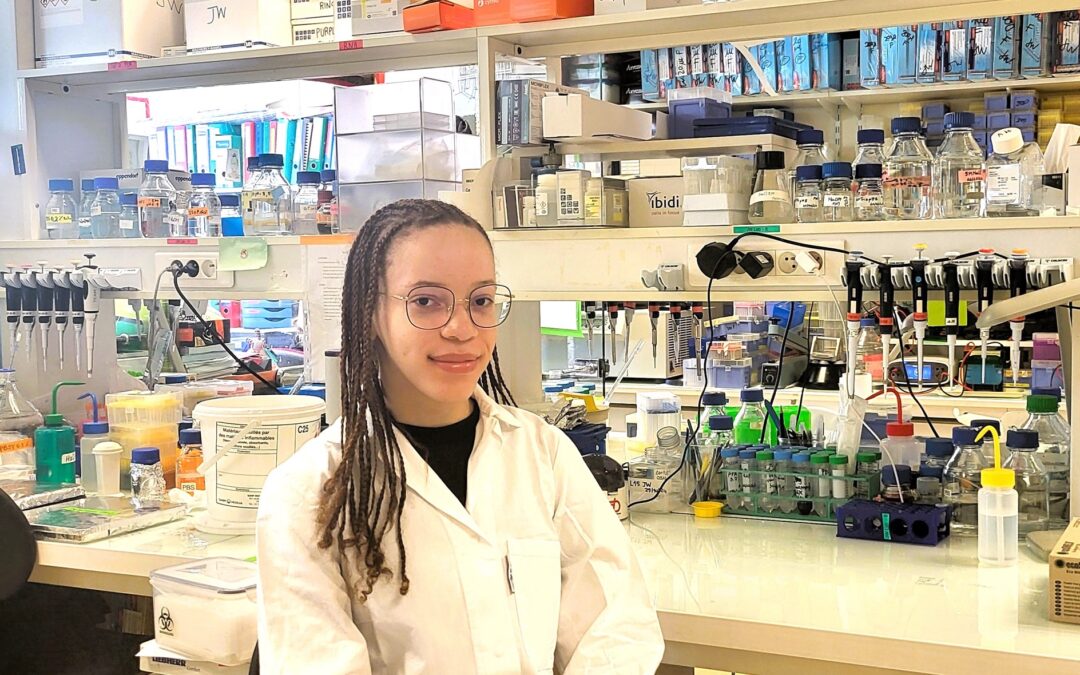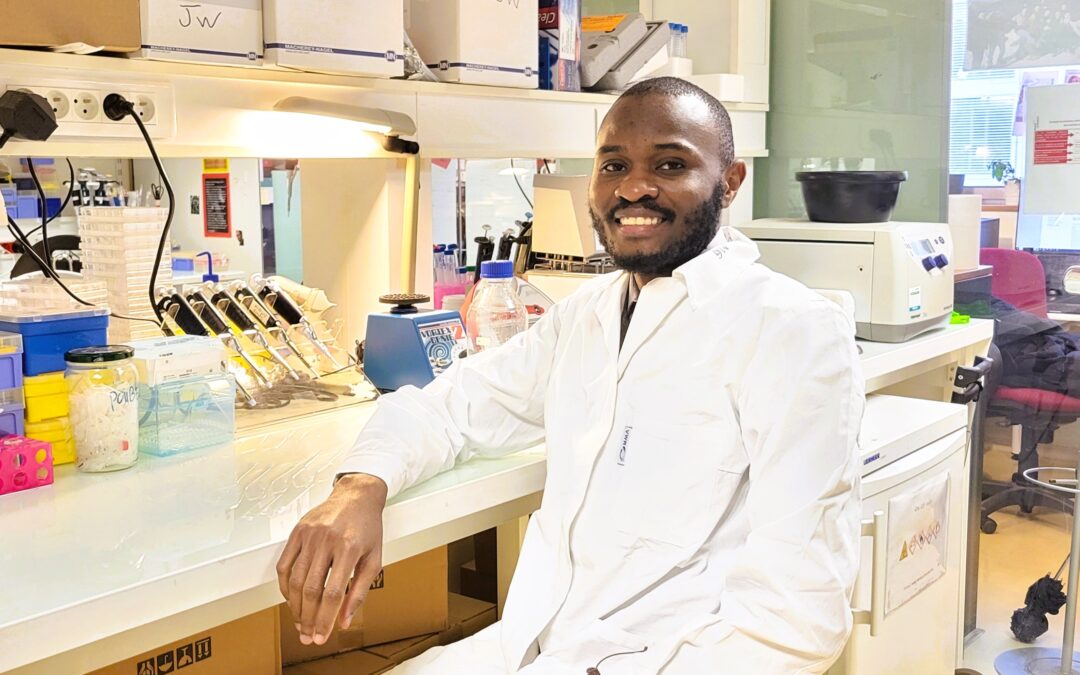SET-ting the scene with SMYD enzymes in cancer

Microscopy image
This image shows cell under division where daugther cells are linked by a cytokinetic bridge.
In purple : Tubulin
In green : CHMP2B
© Aurélie Richard
The methylation of lysine residues is a key post-translational modification (PTM) which has been studied primarily in the context of histone methylation and epigenetic regulation of gene expression. Beyond this well-established role, lysine methylation is now emerging as a regulator of non-histone protein-protein interactions and protein function. Our laboratory investigates the role of lysine methyltransferase enzymes (particularly SMYD family members) and how lysine methylation contributes to deregulated cellular processes and to the development of cancer.
- We showed that the SMYD3 methyltransferase is involved in tumor cell metastasis (e.g. via MMP9 regulation)
- We discovered that SMYD3 is important in cell fate and muscle differentiation
- We found that SMYD3 responds to mechanical signals initiated by changes in cell geometry
Our research aims to identify new substrates through proteomic approaches, coupled with functional validation, to understand the critical role of methylation in differentiation. We use an integrated approach with transcriptomics, biochemistry and functional experimental validation to understand the critical role of lysine methylation in cell fate. We recently discovered novel non-histone targets of the SMYD2 and SMYD3 enzymes with critical roles in cancer cell division. Part of our research will be dedicated to the development of applied tools (for diagnostic and therapeutic purposes).
Our experimental approaches:
We use comparative proteomic approaches combined with experimental cell biology and functional live-cell imaging, together with biochemical approaches to study the role of lysine methylation at the molecular and cellular levels. We use human cancer cell models and parasite-infected cells to study how methylation impacts cancer cell phenotypes.
Read more

Congratulations to Jérémy, newly appointed Associate Professor!
We are delighted to announce Jérémy Berthelet's success in the Assistant Professor competition!On September 1, 2025, Jérémy officially joined our laboratory as a civil servant lecturer-researcher (trainee). This position is an important step, not only in his career,...

Congratulations to Souhila, promoted full Professor !
We are delighted to announce the success of Souhila MEDJKANE, who has been promoted to full Professor!On September 1, 2025, Souhila was officially promoted to Professor. This is a major milestone in her career, and a source of great pride for our team and the teaching...

Welcome to Orlane
Today, we welcome a new member to the team: Orlane. She's a student from the first year of the Brevet de Technicien Supérieur Biotechnologies en Recherche et Production (Two-year technical degree - Biotechnologies in Research and Production).Orlane will be working...

Welcome to Steve
Today, we welcome a new member to the team: Steve, a M2 student from the Magistère Européen de Génétique and an EUR GENE fellow.Steve will be working on the interactions of recently identified new parasite protein.Read more
